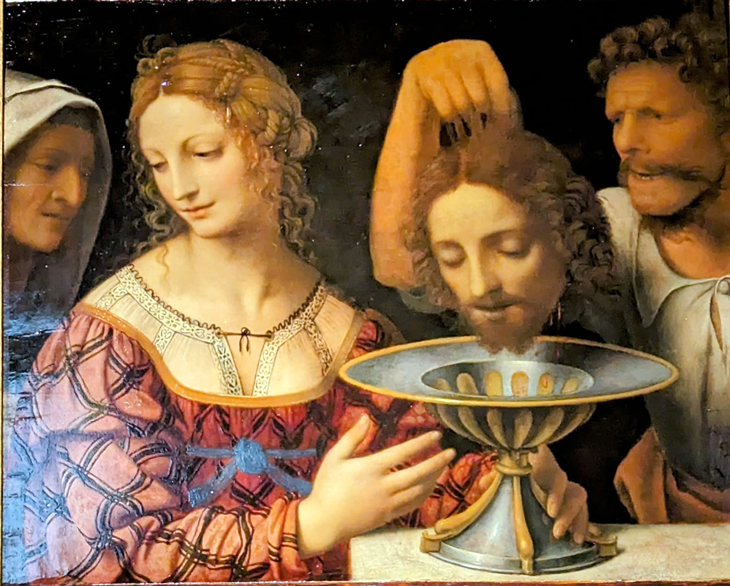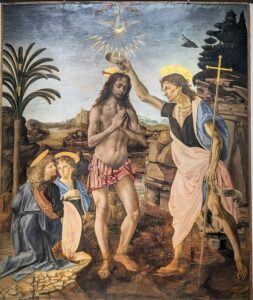A Beacon of Light in Masonic Tradition
Freemasonry, with its rich tapestry of symbols, rituals, and traditions, draws from a multitude of sources to enrich its teachings and guide its members. Among the most revered figures within the Masonic tradition is St. John the Baptist, whose feast day, celebrated on June 24th, holds significant importance for both operative and speculative Masons. This article delves into the historical and symbolic relevance of St. John the Baptist and his feast day in Masonic lore, exploring how they continue to influence and inspire Masons today.
The Historical and Symbolic Significance of St. John the Baptist
St. John the Baptist, known for his ascetic lifestyle and fiery preaching, is a pivotal figure in Christian tradition. He is revered for his role in preparing the way for Jesus Christ and for his unwavering commitment to truth and righteousness. Within the context of Freemasonry, St. John the Baptist symbolizes moral integrity, spiritual purity, and the relentless pursuit of truth.
Historically, operative Masons—those who practiced the craft of stonemasonry—looked to St. John the Baptist as a patron saint. His emphasis on repentance and moral uprightness resonated deeply with the values of the medieval craftsmen, who saw in him a model of ethical behavior and dedication to higher principles. The feast day of St. John the Baptist, marking the summer solstice, was a time of celebration and reflection, aligning with the natural cycles and the light that St. John the Baptist metaphorically represents.
As Freemasonry evolved into its speculative form in the 17th and 18th centuries, the symbolic importance of St. John the Baptist remained. Speculative Masons, who focus on moral and philosophical teachings rather than physical construction, embraced St. John the Baptist as a spiritual guide. His feast day became an occasion for Masonic gatherings, ritual observance, and communal celebration, reinforcing the bonds of brotherhood and shared values.
Traditions and Celebrations of St. John’s Day
St. John’s Day, celebrated on June 24th, is one of the two principal feast days in the Masonic calendar, the other being St. John the Evangelist’s Day on December 27th. These days are often marked by special lodge meetings, processions, and festive meals. The traditions surrounding St. John’s Day vary among different Masonic jurisdictions, but certain common elements can be observed:
Special Lodge Meetings
Many lodges hold special meetings or assemblies on St. John’s Day, incorporating rituals and readings that highlight the teachings and virtues of St. John the Baptist. These meetings are often open to all members of the lodge, fostering a sense of inclusivity and fraternity.
Processions and Public Celebrations
Historically, Masonic processions on St. John’s Day were common, with members donning their regalia and parading through town. These public displays served to reinforce the Masons’ commitment to their communities and to the moral principles embodied by St. John the Baptist.
Feasts and Social Gatherings
A central part of St. John’s Day celebrations is the festive meal, where Masons come together to share food, drink, and fellowship. These gatherings provide an opportunity for members to strengthen their bonds, reflect on their shared values, and celebrate their Masonic heritage.
Charitable Activities
In the spirit of St. John the Baptist’s teachings, many lodges use St. John’s Day as an occasion to engage in charitable activities, supporting local communities and those in need. This practice underscores the Masonic commitment to benevolence and service.
The Continuing Relevance of St. John the Baptist for Masons
St. John the Baptist’s emphasis on moral rectitude, personal integrity, and the quest for spiritual enlightenment continues to resonate with Masons today. His life and teachings serve as a reminder of the principles that underpin Masonic philosophy—truth, charity, and the betterment of oneself and society.
For modern Masons, the feast day of St. John the Baptist is not merely a historical observance but a living tradition that reinforces their commitment to these values. It is a time to renew their dedication to the Masonic ideals, to reflect on their personal and collective journeys, and to draw inspiration from the example set by St. John the Baptist.
A Fraternal Message
As we approach St. John the Baptist’s Day, let us remember the profound legacy of this revered figure in our Masonic tradition. May his example inspire us to live with greater integrity, to seek truth in all our endeavors, and to extend our hands in fellowship and charity to all.
Brothers, let us come together in celebration and reflection, honoring the light that St. John the Baptist brings to our craft. In the spirit of unity and brotherhood, may we continue to build our moral and spiritual temples, ever striving to be worthy of the name “Freemason.”
Happy St. John the Baptist’s Day, brethren. May the light of his teachings guide us always.



